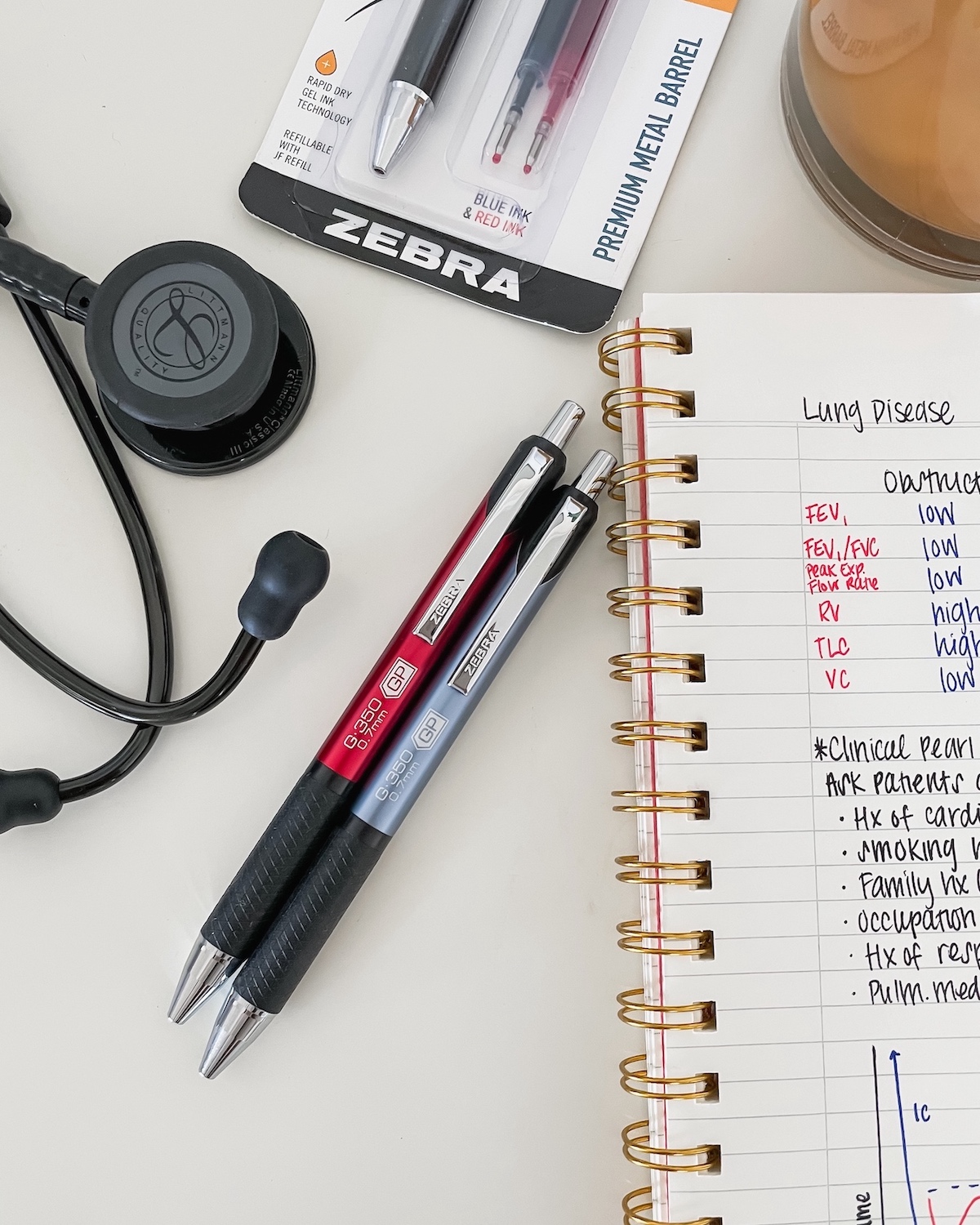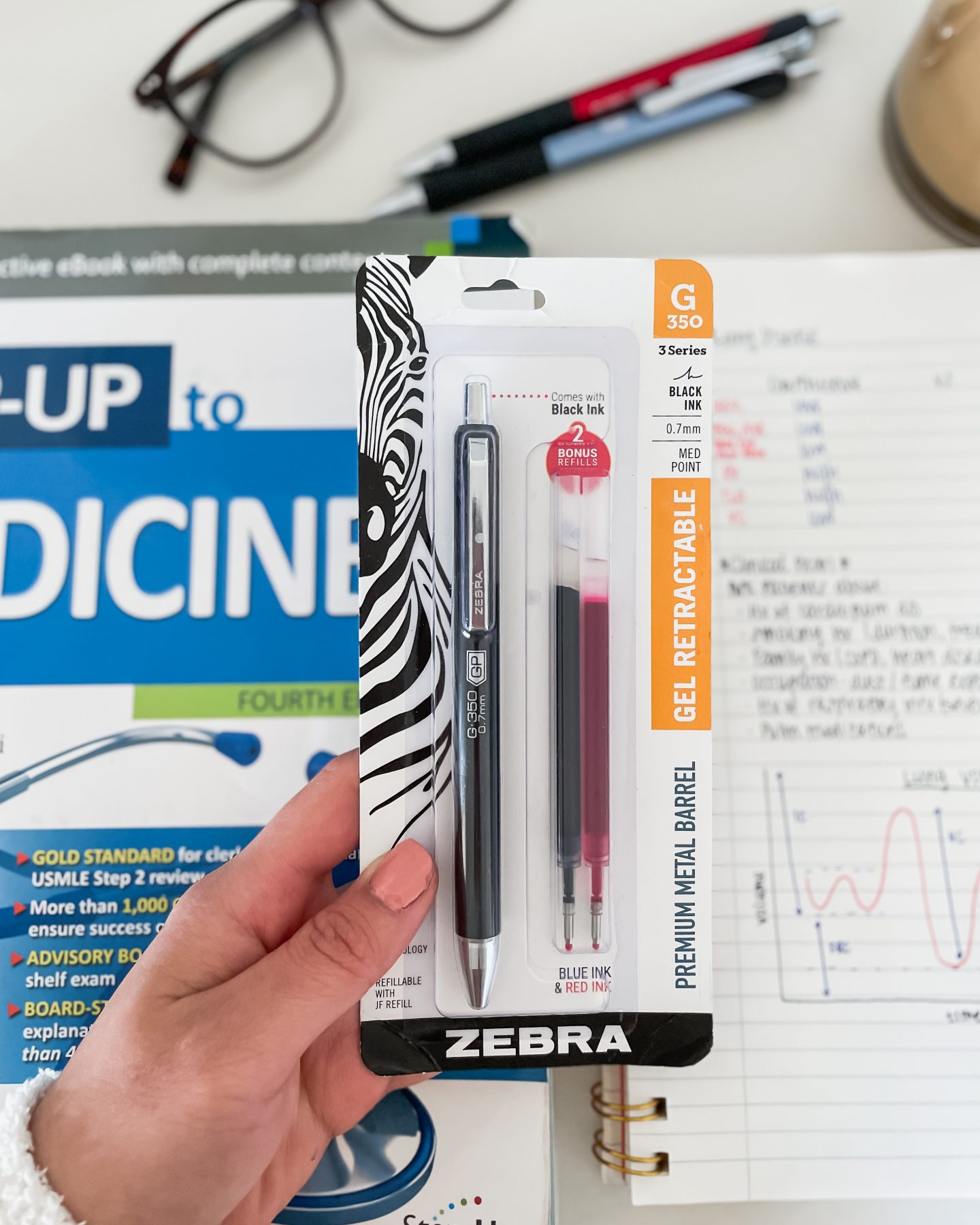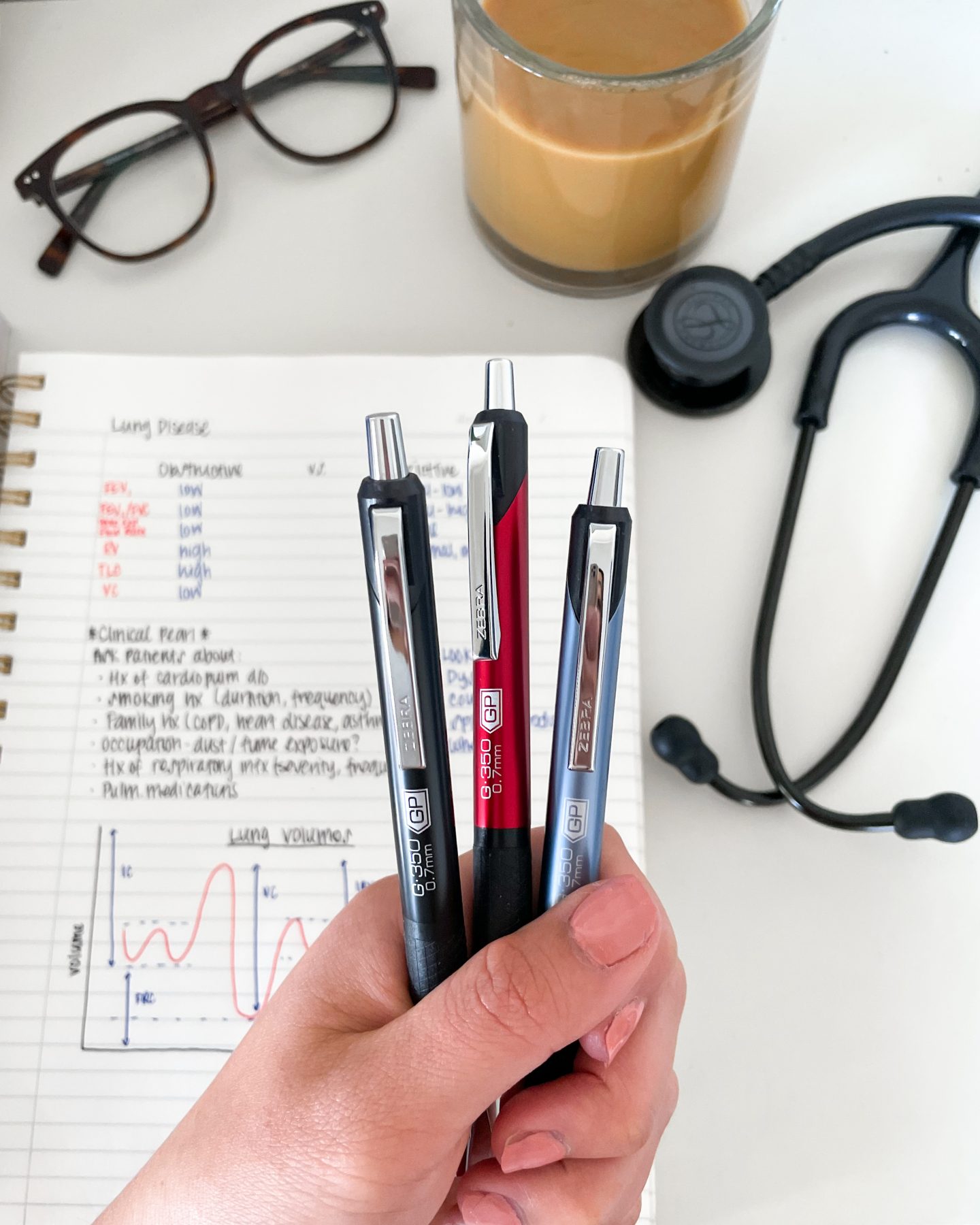
This post has been sponsored by Zebra Pen. All thoughts and opinions are my own.
Does this ever happen to you? You spend hours going to class, listening to lectures, and reading book chapters. But, you feel like you just forgot all of the information you just learned. I know how you feel. One of the major challenges of medical school is learning how to effectively absorb and understand all of the information quickly thrown at you. Throughout my four years in medical school, my studying has evolved. As a seasoned medical student, I have learned how to use only study techniques that allow me to work smarter, and not harder. Here are the five most effective tips I use as a medical student!

1. Write it down!
The act of writing down your notes (instead of typing it) will help you conceptualize and memorize the material better! I personally take countless pages of handwritten notes because it is an active form of listening and learning! If you’re an electronic note-taker, I still recommend writing down figures, tables, and images (especially for anatomy!). Having the right pens is so important to me. One of my favorites lately is the G-350 Gel Retractable Pen by Zebra Pen. It has a fancy pen feeling that makes it enjoyable to write notes! It also has a rubber grip for comfort and is a stylish, affordable premium pen! Learn more about how you too can Choose Different here.
2. Create mnemonics
Research shows that mnemonics can help you learn and retain large amounts of information. Mnemonics like ROYGBIV (for colors of the rainbow) serve as easy, memorable mental shortcuts. Mnemonics can be anything from phrases, images, sentences, etc. Google the topic you’re learning + “mnemonics” and see what you find. You can even make up your own. The more creative and personal they are, the more you’re likely to remember them!
3. Test yourself
This was something I wish I knew before medical school! Quizzing your knowledge is a form of active learning, and it is one of the most powerful learning methods. You can quiz yourself from your own notes or with help from your peers. You can and should also test your knowledge with question banks. I make sure to start quizzing myself at the start of each block, if not at least two weeks out from an exam!

4. Study in 20-30 min blocks
When medical students say they studied for 8+ hours, they don’t actually mean that they sat and studied for that long. The Pomodoro method is a very common productivity hack many medical students use! We study for short, but intense blocks at a time. We also take frequent, but short breaks. Try the Pomodoro method next time you sit down to study! You’ll see how effective it is!
5. Make a study schedule and stick to it!
Create a study schedule with the resources you want to cover at the beginning of each block or rotation. Let’s say you want to finish First Aid for Psychiatry in 3 weeks. Divide the number of chapters by the number days you have to study. This will give you a specific goal of how many chapters you need to finish each day. You can do the same with UWorld questions, video lectures, etc. Having a specified goal will help you feel more accomplished and will keep you on track to do well!
Lastly, I wanted to share one more cool thing about the Zebra G-350 Retractable Pen. Each one comes in classic black ink, but also includes refills/barrels with both blue and red ink so that you can customize your pen! This is perfect for color coding your notes and helps empower me to Choose Different in and out of my career.
